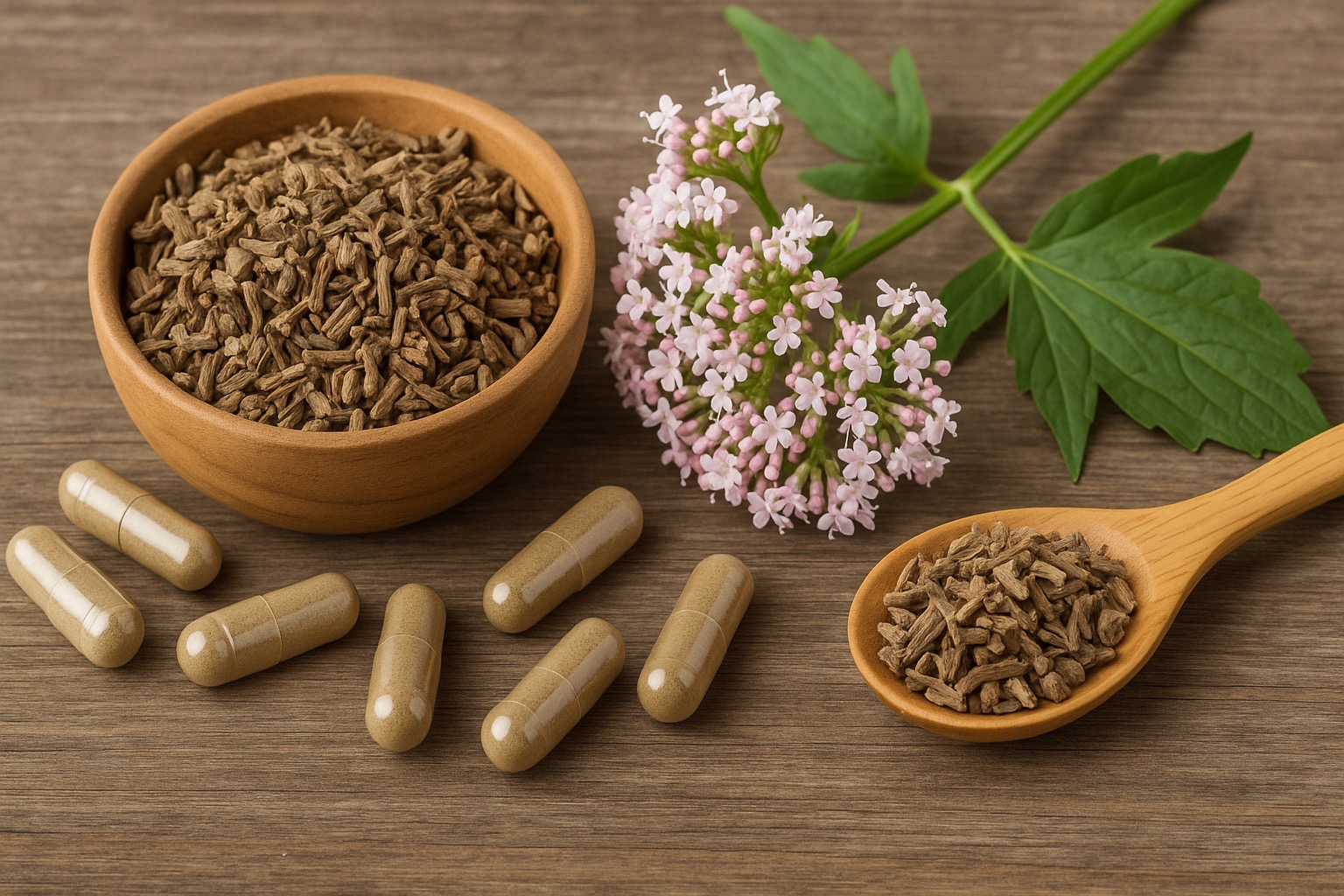
Valerian (Valeriana officinalis): A Natural Aid for Anxious Insomnia
- Ethan Brooks
- Sleep , Health , Natural remedies
- April 24, 2025
Table of Contents
Valerian (Valeriana officinalis): A Natural Aid for Anxious Insomnia
Sleep Problems in Anxious Individuals
If you often wake up in the middle of the night with intrusive thoughts about work, finances, or relationships, you are not alone. Insomnia caused by anxiety differs from insomnia that can be treated with simple sleep hygiene. In such cases, common advice like “don’t take your phone to bed” or “go to bed at the same time” offers little help. And sleeping pills, especially with long-term use, can only worsen the situation: causing dependence, reducing cognitive activity, and deteriorating overall well-being.
What if you want to fall asleep gently and without side effects? Here, a proven herbal remedy can come to the rescue — valerian (Valeriana officinalis).
Why Was Valerian Previously Considered Ineffective?
Many are used to thinking that valerian doesn’t help. This opinion was largely formed due to weak dosages in pharmacy preparations and a lack of understanding of its action. However, modern studies have shown that valerian does work — but under the right conditions: a standard dosage, regular intake, and waiting for a cumulative effect.
How Does Valerian Work?
Valerian affects the central nervous system through GABA-A receptors, modulating their activity. Unlike benzodiazepines, it binds not to the gamma but to the beta subunit of the receptor. This causes an increased flow of chloride ions into the neuron, leading to its “sleep” and the inhibition of excitatory signals.
Valerian also reduces the rate of metabolism and removal of GABA, the brain’s main “inhibitory” neurotransmitter. All this creates a more stable and gentle inhibition of the nervous system.
Why Doesn’t the Effect Occur Immediately?
Valerian is not a sleeping pill in the classic sense. It doesn’t “knock you out” immediately after ingestion but accumulates in the body and gently stabilizes GABA levels. The effect develops gradually, usually within 1–2 weeks of regular use.
Therefore, it is important not to stop taking it after the first unsuccessful nights. Valerian does not work “on demand” — it requires patience.
What Science Says: Dual Effect
Modern research confirms a dual therapeutic effect:
- Improvement in sleep structure and quality.
- Reduction of daytime anxiety without sedation and cognitive inhibition.
This is especially important for those who want to be alert and productive during the day but need a calmer and deeper sleep at night.
Safety: Why It’s Worth Trying
Unlike classic sleeping pills, valerian:
- Does not cause addiction or withdrawal syndrome
- Does not impair cognitive function
- Has minimal side effects (rarely: headache, mild nausea)
- Is safe even with significant dose excesses (no cases of overdose have been reported)
How to Take It: Instructions for Use
It is recommended to use standardized extracts with a proven concentration of active substances.
- Dosage: 300–400 mg of extract 30–60 minutes before bedtime.
- In clinical trials, doses up to 1200 mg were used without a significant increase in side effects.
- Important: homemade decoctions and infusions are difficult to standardize in terms of concentration, so it is better to choose pharmacy extracts.
What to Look for at the Pharmacy
- Many valerian preparations contain microdoses (20–50 mg) and are ineffective.
- Look for the indication “extract” and the actual dosage (300 mg and above) on the packaging.
- Valerian is not suitable for acute stress or panic attacks — it works slowly and requires accumulation.
Conclusions
Valerian is not an “old wives’ tale” remedy but a scientifically based alternative for those who want to gently improve sleep and reduce anxiety without the risk of dependence. It is especially useful for chronic anxious insomnia when other methods do not work, and drug therapy seems excessive.
If you are looking for a herbal, safe, and proven remedy to restore sleep, it is worth giving valerian a chance.
Disclaimer
The information provided on BioBrain is intended for educational purposes only and is grounded in science, common sense, and evidence-based medicine. It is not a substitute for professional medical advice, diagnosis, or treatment. Always consult a qualified healthcare provider before making significant changes to your diet, exercise routine, or overall health plan.
Tags :
- Valerian
- Insomnia
- Anxiety
- Sleep
- Natural remedies
- Herbal remedies